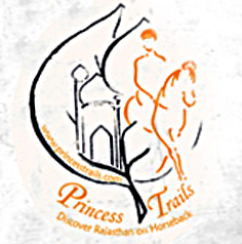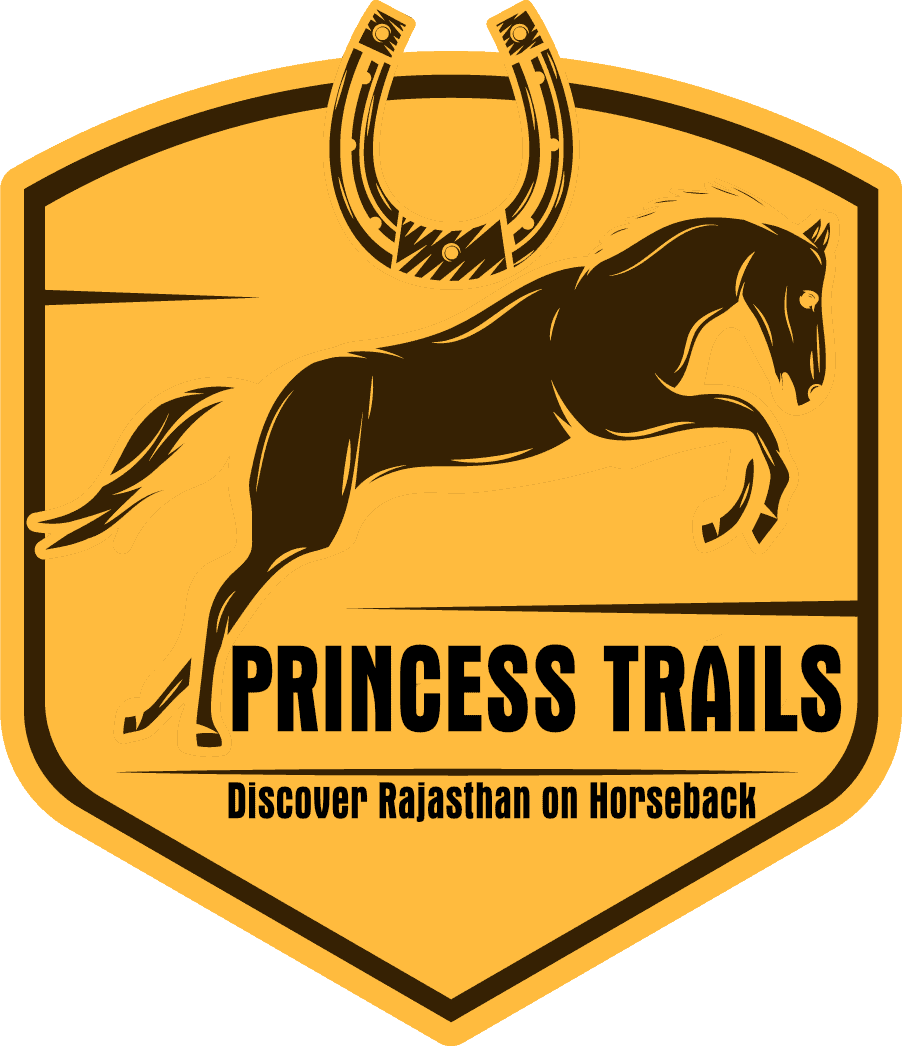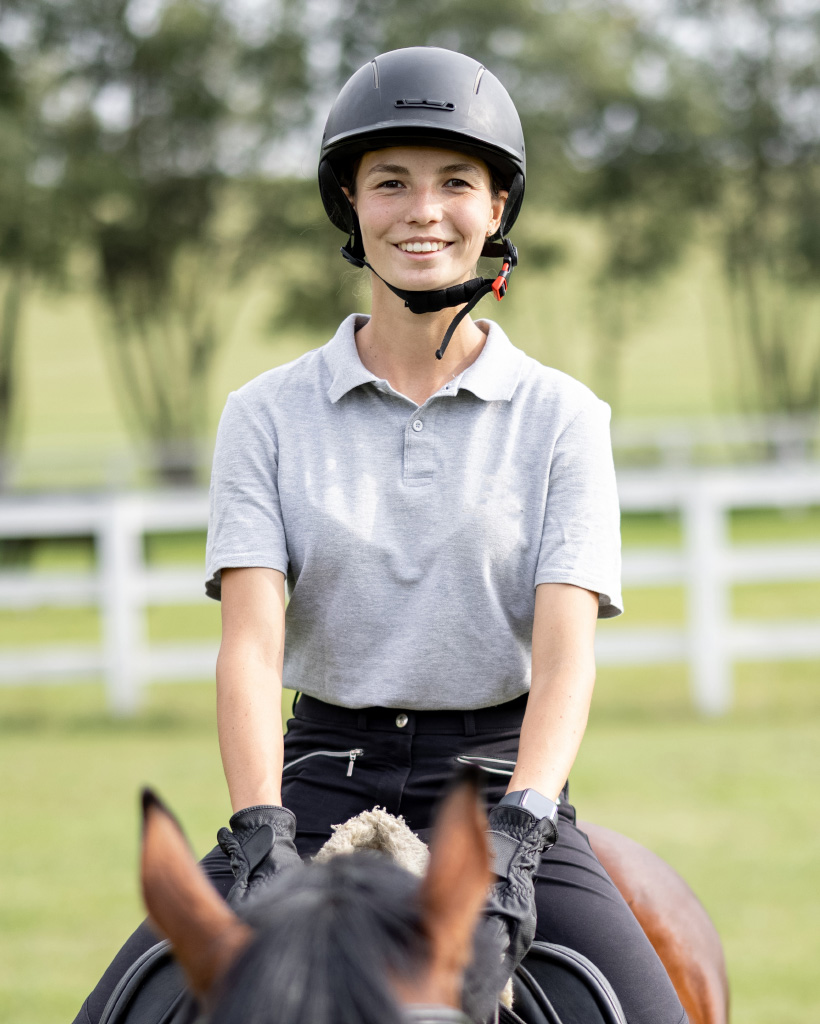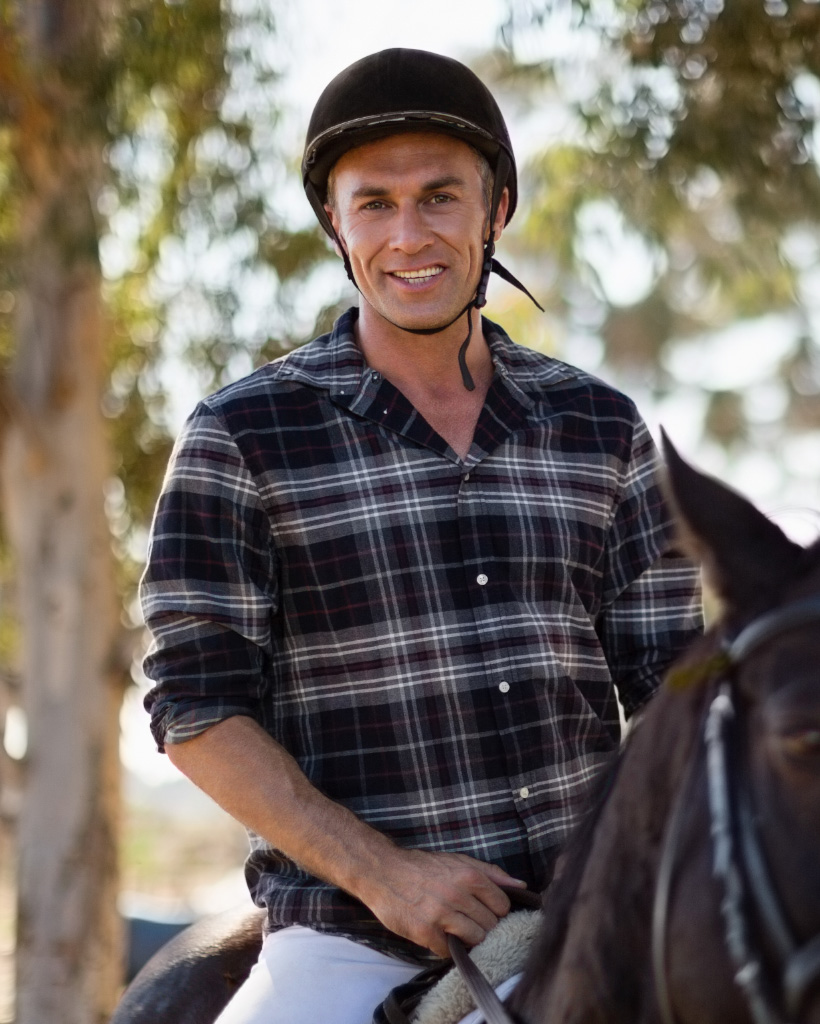Horses
- Home
- Horses
About Horses
The Marwari Horse
Nearly all the horses we use for safaris and trail riding are Marwari horses. This breed is native in Rajasthan and best suited for long rides in this region.
Formerly bred for the purpose of war, the Marwari horse has Arab and Turkmeni ancestors, which were brought to India by Central-Asian and Muslim invaders. His home is the desert kingdom of Marwar from where it spread through the whole of Rajasthan. Its name means quite literally “from the land of death”. Over centuries it was bred in the harsh desert climate of Rajasthan by warring Rajput clans.
The outcome was a hardy, intelligent horse with a great stamina, which could thrive on little food and water.
Trained highly in the art of war it was known for its bravery on the battlefield.
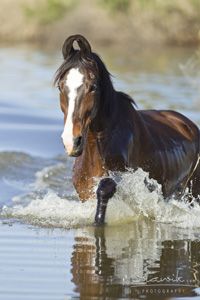
Combining sublime beauty, an unbreakable spirit with courage and loyalty unto death, these horses were the bold and magnificent chargers of the fearless Rajput warriors.
Fighting against elephants the Marwari horse had to stand up on its hind legs and provide the rider with an opportunity to kill the combatant sitting on top of the elephant in its howdah.
On the battlefield, horse and warrior had to become one in order to fight and survive, so the Marwari Horse is said to have an extraordinary instinct and the ability to act upon the mere thoughts of the rider. Besides this, it is fiercely loyal and is known for always being able to bring his rider home.
Its courage and gallantry are the theme of many songs and tales. The most famous example is the story of how the Marwari steed Chetak saved his master Maharana Pratap in the battle of Haldi Ghati in 1546. The Maharana was fighting against the army of Akbar the Great and had to flee after the battle was lost. Though mortally wounded, with one foot severed, Chetak carried his master to safety by jumping over a river. Only then he gave up his life and died, according to the legend, in his master’s arms. Maharana Pratap never forgot his loyal Chetak and when the circumstances improved, he erected a monument in his memory. This memorial still exists today in the village of Haldi Ghati, 30 km north of Udaipur.
The Rajput did not yearn for wealth or riches. Instead in his prayers to his goddess, he never failed to remind her that all which mattered to him was being able to face the challenges of life with a sword in his hand and a horse by his side. One day of the year was especially dedicated to honor and worship his horse in recognition of his unfailing contribution to the survival of the Rajput race. This tradition has survived till today and is observed for the occasion of Durga Ashtami.
The fortunes of the Marwari horses changed with the ascendancy of the British in India. British officers found the Marwari to undersized and hot tempered, so they imported shiploads of Australian Whalers. They were quick, tough and inexpensive.
The Maharajas passed under British supremacy and lost the means to keep an army. They turned to luxury and extravagance and copied British ways. Instead of keeping Marwari horses, they bought expensive thoroughbreds or Australian mounts. Having surrendered their very reason d’etre, India’s former kings and nobles lost a fundamental part of their soul and left their heritage and traditions behind.
After independence things did not improve for the Marwari horse, in fact the situation worsened. Being perceived as a symbol for the despised feudalism, many Marwari horses were castrated, killed and scattered. The breed was neglected for decades and few pure specimens survived.
Finally the Marwari horse was saved by its own people and by the then nascent tourism. Local people, often from the former noble families, managed to salvage a few animals and started their own breeding programs. Tourism and horseback-safaris have provided a tremendous boost to the revival of the Rajput culture and ultimately to the future of the Marwari horse. Today there are countless breeders in Rajasthan, Gujarat as well as the Punjab and the prospect of the Marwari horse looks brighter than it has for a long time. The Marwari horse is a medium-sized, elegant horse. The most distinguishing features of the Marwari horse are its lyre-shaped ears, which curve inward and often meet at the tips. Besides providing a sharp hearing, they can be turned by 180 degrees. The Marwari has a longish head with a broad forehead, wide-set and alert eyes and a well-shaped rather small mouth. It is elegantly proportioned with a proud head carried on a well-arched neck. The legs are straight and sound with small and very hard hooves.
The coat of the Marwari horse is silky and often has the metallic shine of the Turkmeni horses. It comes in all colours, including piebald and skewbald. Very popular as well, are the Cremellos, which in Rajasthan are called Nukra. Many Marwari horses are gifted with a 4 th gait, the so-called Revaal, a kind of amble, which is very comfortable for the rider to sit. In the Revaal, the Marwari horse can cover large distances very smoothly and speedily. It is however not found in all individuals and does not impact the breed standard.
Our Horses
On our farm 8 km outside Udaipur our horses are at home. They live in comfortable stables and paddocks and are left to roam free during the day on our farm.
All our Marwari horses were handpicked by us as we wanted to have only the best suited horses for our safari. As we have some foals every year, some of our riding horses were born in our stable and raised and trained by us. In fact we are very proud that today we have a stable of finest Marwari horses fit for riding and breeding.
We believe in the principle of Natural Horsemanship which means that we keep our horses as natural as possible and train them according to NHS. Some of them are ridden with a hackamore, just a halter or even a simple neck rope. All are very well trained, obedient and a pleasure to ride.
Our horses are cared for with love and affection. They are properly fed, vaccinated, de-wormed and shoed. We have imported saddle tack for all of them in order to maximize comfort for horse and rider.
On the safaris we take only horses which are 100% fit and prepared. Already before the safari we try to find a suitable horse for each rider according to riding skill and preference. Spare horses go along each trail in case another horse goes lame or one rider wants to change.
The Marwari itself is already a reason to do a horseback safari in Rajasthan. There are not many breeds in the world which are as intriguing, noble and courageous as these former warhorses and mounts of the Maharajas and princes of India.
Our family’s faith has been intertwined with those horses for generations and the passion for them is unbroken.
Why Choose Us
We Provide The Best Equestrian and Horse Riding Since 2010
Our Vision
Lorem ipsum dolor sit amet, consecte adipiscing elit, sed do eiusmod tempor incididunt
Our Mission
Lorem ipsum dolor sit amet, consecte adipiscing elit, sed do eiusmod tempor incididunt
